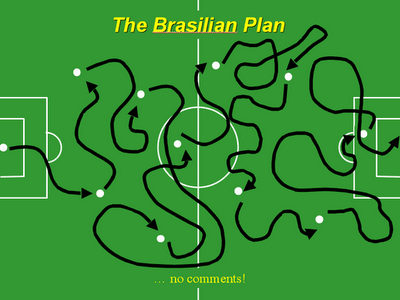
We talk a lot about strategy here, but it’s important to think about the fact that strategy is really nothing if you don’t know how to implement it correctly. We were working with someone a while back, an incredibly bright design firm, degrees (and good ones) up the wazoo, the smarts when you walked in that door were ridiculous. Their problem? They strategized, that’s it. They literally thought too much. They would come up with incredibly complex ideas about what their company did, what it stood for. But they would just keep thinking, and thinking over themselves.
As important as strategy is, the conversation about tactics can sometimes be overlooked or assumed. It’ll all come together, right?
Well, no, not always, and tactics is still really important. Tactics without strategy is usually a recipe for disaster, but so is strategy without tactics.
Bob Sutton put it well in “Strategy is for Amateurs, Logistics are for Professionals” (13 July 2010, Works Matters):
“My colleague Jeff Pfeffer and I have argued for years that implementation, not strategy, is what usually separates winners from losers in most industries, and generally explains the difference between success and failure in most organizational change efforts, sales campaigns and so on. I also believe (and wrote here) that one of the dangers of talking about leadership versus management is that the implication is that leadership is this important high status activity and management is the shit work done by the little people. My view (and there is plenty of evidence to support it) is that effective management — the work done by the collection of bosses and their followers in an organization, if you will — is probably most crucial to success. After all, they are the people who turn dreams into reality.”
Coming up with the game plan to execute strategy is just as important as the strategy itself (I’m going to refrain from making sports references here).
In addition to coming up with the “right” tactics, you need to make sure that your strategy is flexible enough to build for variances when it comes to tactics. This further highlights the importance of your tactics: if you don’t stick with the right ones, or if the right ones change, your strategy won’t be successful.
So while we tout strategy (a lot, admittedly), we also know how tricky it can be to carry out that strategy, and how important your toolkit becomes with implementation.
Related articles
- Implementing strategy (theglobeandmail.com)
- Yes, Content Is King - But Don’t Forget About Strategy. (socialmediatoday.com)
- The art of implementing strategy (theglobeandmail.com)










